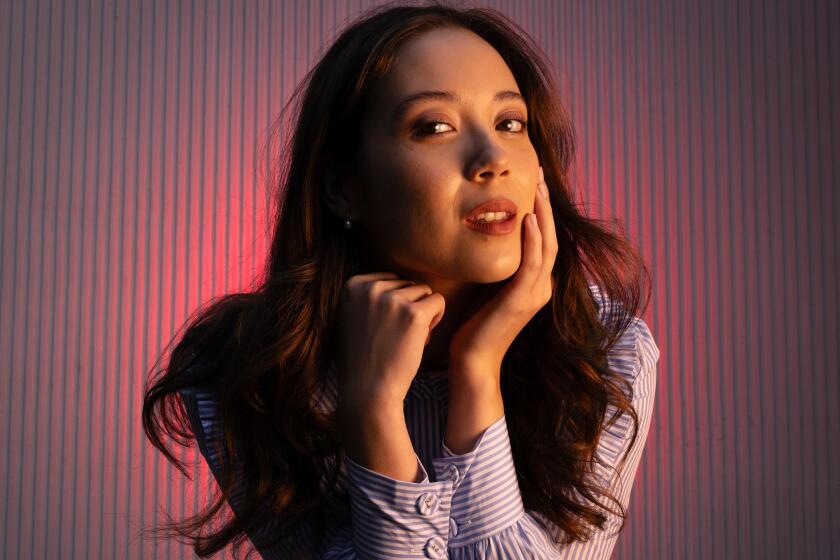Adventures with Dianne Reeves
- Share via
Dianne Reeves has a voice to die for -- crystalline and bell-like in her soaring soprano notes, warm and embracing in her middle range, dark and feline in her low chest tones, and always delivered with spot-on pitch accuracy.
The four-time Grammy Award winner’s program at Royce Hall on Thursday night was a virtuosic display of all those qualities, combined with an improvisational adventurousness that has made her one of the signature jazz vocalists of her generation.
Virtuosity and intrepid improvising are best served, of course, on a jazz menu that also includes lyrical insights, dramatic pacing and an appreciation for the values of sounds and silences. And there were times when Reeves, backed by pianist Peter Martin, guitarist Peter Sprague, bassist Reuben Rogers and drummer Gregory Hutchinson, brought all those qualities together in impressive fashion.
Most of the material was drawn from her recently released CD, “When You Know,” her first solo album in five years. The selections -- bossa nova numbers “Triste” and “Once I Loved,” the standard “One for My Baby” and a cover of the Temptations’ pop classic “Just My Imagination” -- underscored her eclectic taste and the range of her stylistic abilities.
Interestingly, however, the evening’s most mesmerizing moment was Reeve’s gripping, a cappella rendering of Duke Ellington’s “I Like the Sunrise.” Capturing every aspect of the song -- the poignancy of the lyrics, the airiness of the melody -- it was a stirring display of Reeve’s potential for musical and interpretive mastery.
But that was not always true of other numbers.
Although Reeves was frequently at her storytelling best in her song introductions, her actual readings of songs sometimes tended to evolve in too-similar patterns, losing contact with the actual flow of the lyrics, while building to predictable emotional climaxes. In the process, the most intimate aspects of a lyric were lost in the rush.
Such lines, for example, as “Love is the saddest thing when it goes away” (“Once I Loved”) and “The autumn leaves were turning to the color of his hair” (“Windmills of Your Mind”) were sung with full-out intensity, rather than the held-breath emotional suspension they deserve.
Given the audience’s enthusiastic response to Reeves’ more ebullient moments, there wasn’t a lot of encouragement to display the more subtle aspects of her inner Muse. And that’s a shame, because at her best she has the skills, the talent and the imagination to function fully and impressively on both those levels.
More to Read
The biggest entertainment stories
Get our big stories about Hollywood, film, television, music, arts, culture and more right in your inbox as soon as they publish.
You may occasionally receive promotional content from the Los Angeles Times.










